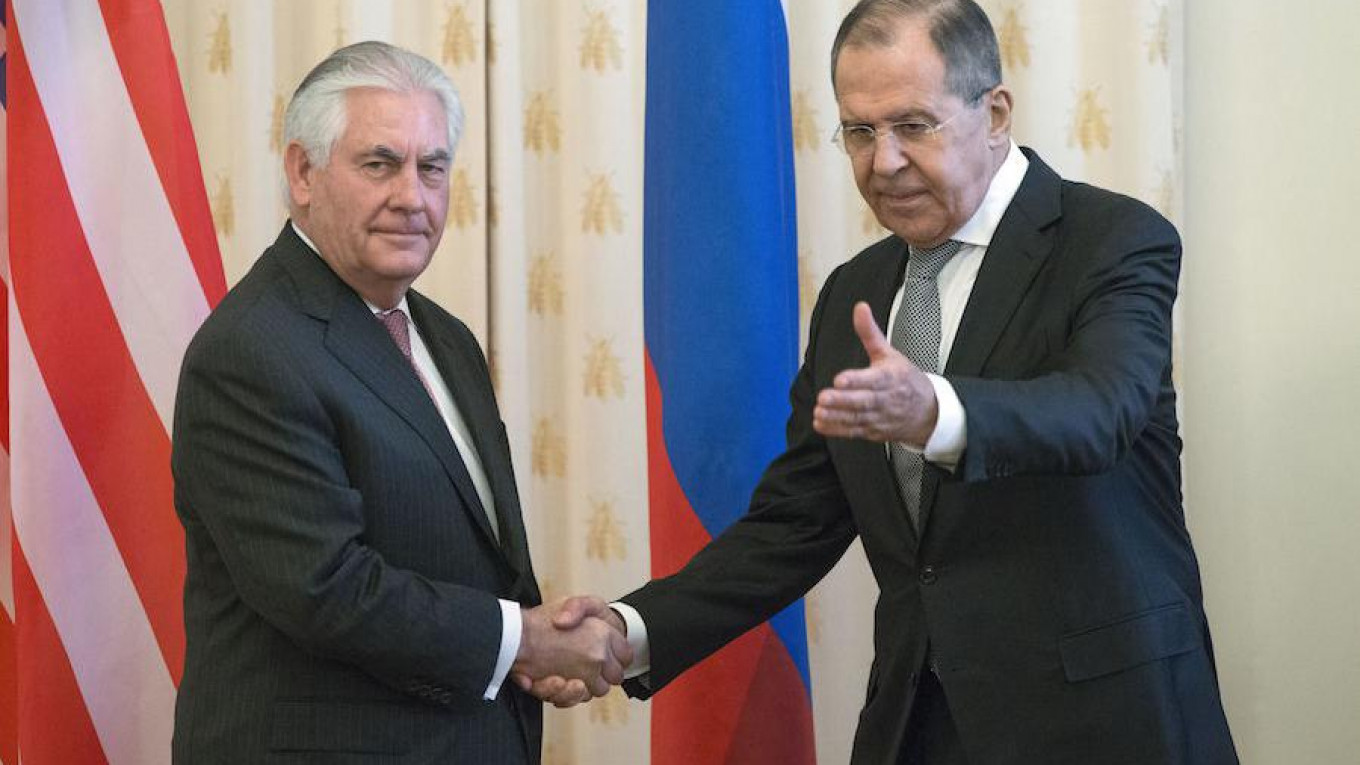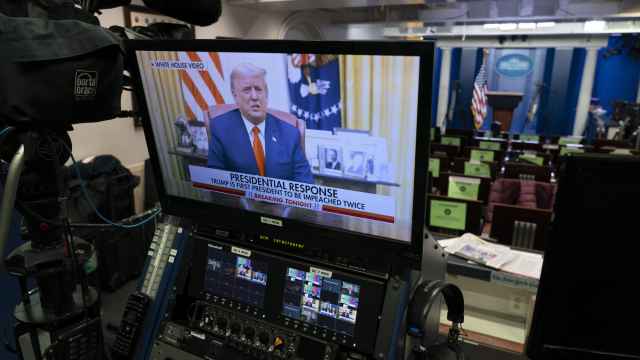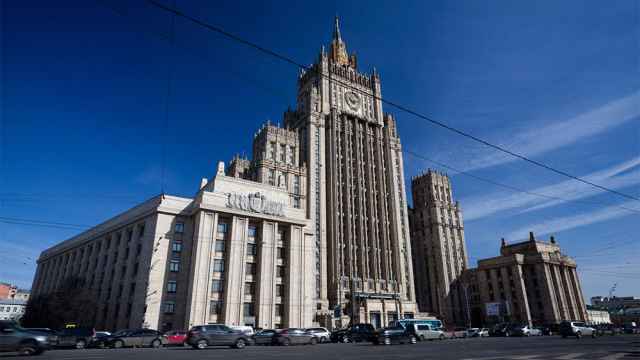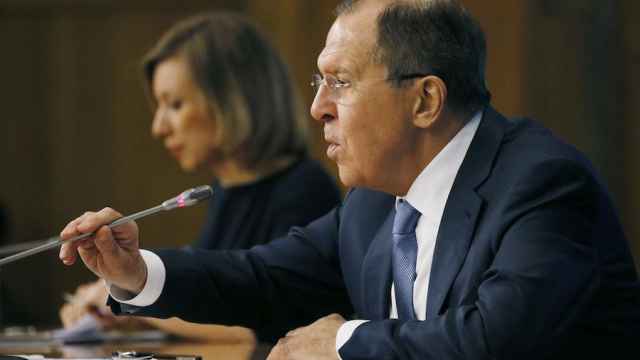As U.S. Secretary of State Rex Tillerson landed in Moscow on April 11, he was met with the billowing smoke of a raging trash dump fire outside the airport grounds. It was a fitting metaphor for U.S.-Russia relations under President Donald Trump. But more than anything, it represented the fiery death of Moscow’s hopes for a detente with Washington.
Tillerson’s visit to Moscow was the Russian government’s first face-to-face with a sitting member of Trump’s cabinet. But the context of the visit was not what Russia envisioned when Trump took office — The new U.S. administration has increasingly come to resemble a traditional Republican regime on matters of foreign policy.
At the top of Tillerson’s agenda was the war in Syria. Fresh allegations that Russia’s ally in the conflict, Syrian president Bashar Assad, has used deadly sarin gas against civilians has caught the Kremlin off-guard. Over the past two weeks, Tillerson and the Trump administration have adopted a tough line on Moscow — and they want Putin to abandon Assad.
Moscow insists Assad was not responsible for the attack. But Trump’s administration isn’t buying it. In the past week, Trump has ordered a cruise missile strike on Syria, released a 4-page dossier pinning the attack on Assad and taken to openly criticising Russia’s support for the Syrian government. Tillerson himself suggested Russia was complicit in the attack.
In what may have been Trump’s first direct criticism of Putin, the president said in a Fox News interview aired April 12: “Frankly, Putin is backing a person who is truly an evil person, and I think it is very bad for Russia, it is very bad for mankind, very bad for this world, but when you drop gas … when I saw that I said we have to do something.”
For the Kremlin, its relationship with Trump’s U.S. was not supposed to go like this.
Four month’s ago, when then President-elect Trump announced he would nominate former a former ExxonMobil chief, for Secretary of State, everything seemed to be going Moscow’s way. During his campaign, Moscow saw something of itself in Trump: a cynical, opportunistic politician free of the burdens of the traditional Western foreign policy consensus.
The nomination of Tillerson was seen as a sign that Trump’s campaign promises were sincere. Tillerson was a man with whom Russia could deal. The former head of ExxonMobil spearheaded deals with Russia’s largest oil company, Rosneft, and was famously awarded an “Order of Friendship” medal by President Vladimir Putin himself.
“Pragmatic.” This was how Russian Foreign Minister Sergei Lavrov chose to describe Tillerson after Trump tapped him to serve as chief diplomat. “[This is a] good basis for constructing mutually beneficial relations, mutually beneficial from the point of view of Russian-American interactivity and of solving international problems,"
For Moscow, that pragmatism meant one thing: Tillerson — and the Trump administration at large — would see the error in the previous administration’s ways. The Kremlin believed it had found another opportunity to sell Washington on its ultimate pitch: We will use our leverage with Assad to help end the conflict there, if you lift Ukraine-related sanctions.
But as the Trump administration is settling in, Moscow has found itself increasingly disappointed. Amid a domestic frenzie concerning the Trump campaign’s possible ties to Moscow, key voices within the administration — like former National Security Advisor Michael Flynn — were pushed out and replaced by more traditional Republican-minded voices like General H.R. McMaster.
It is also telling that UK Foreign Secretary Boris Johnson cancelled a planned visit to Moscow this week. Tillerson and Johnson attempted to rally leaders of the G7 in Italy on April 11 into committing to additional sanctions on Russia in response to Moscow’s support for Assad. Both governments appear to be carrying on the policies of their predecessors.
A statement from the British Prime Minister’s office laid plain that Trump and Theresa May are continuing the U.S.-UK special relationship: "The Prime Minister and the president agreed that a window of opportunity now exists in which to persuade Russia that its alliance with Assad is no longer in its strategic interest.”
Put another way: Meet the new boss, same as the old boss.
A Message from The Moscow Times:
Dear readers,
We are facing unprecedented challenges. Russia's Prosecutor General's Office has designated The Moscow Times as an "undesirable" organization, criminalizing our work and putting our staff at risk of prosecution. This follows our earlier unjust labeling as a "foreign agent."
These actions are direct attempts to silence independent journalism in Russia. The authorities claim our work "discredits the decisions of the Russian leadership." We see things differently: we strive to provide accurate, unbiased reporting on Russia.
We, the journalists of The Moscow Times, refuse to be silenced. But to continue our work, we need your help.
Your support, no matter how small, makes a world of difference. If you can, please support us monthly starting from just $2. It's quick to set up, and every contribution makes a significant impact.
By supporting The Moscow Times, you're defending open, independent journalism in the face of repression. Thank you for standing with us.
Remind me later.






